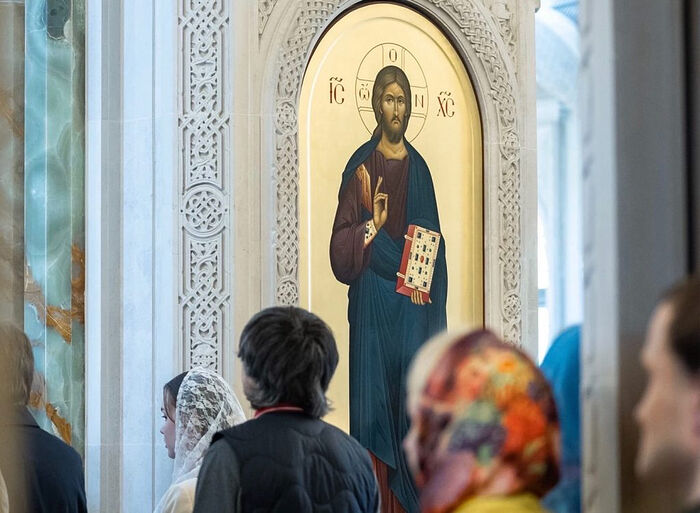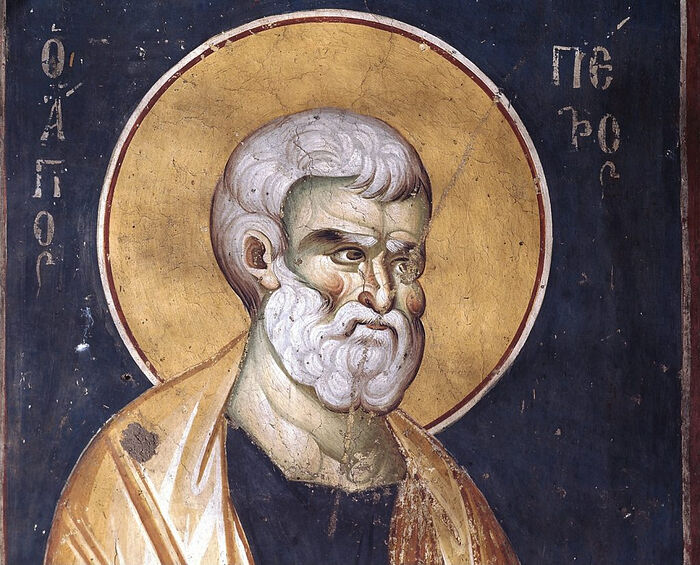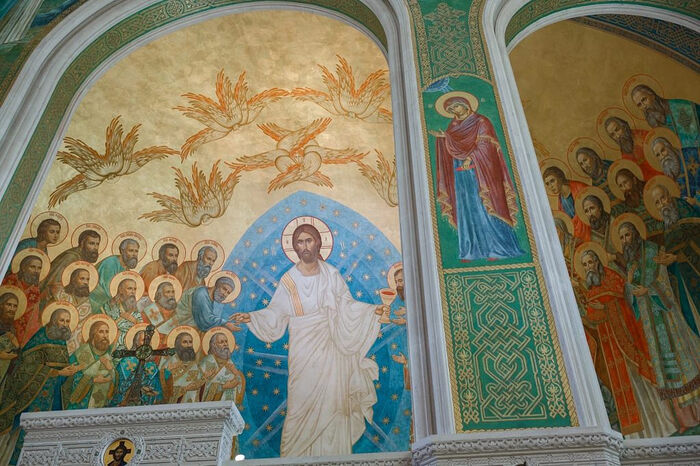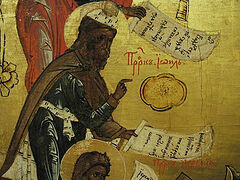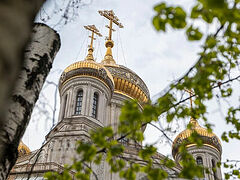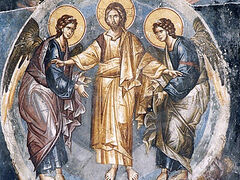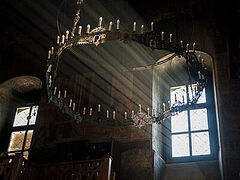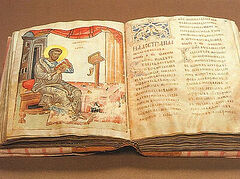We continue our talks on the Book of Acts with Sergei Komarov, a well-known catechist based in Moscow.
Moving on: Jesus of Nazareth, a Man approved of God among you by miracles and wonders and signs (Acts 2:22).
Here the Apostle Peter uses three main words, which in the Gospels and in the New Testament in general mean miracles: “dyanmis,” “teros,” and “simion.”
“Dynamis” is translated as “miracles.”1 The miracles of Christ are “powers” in the sense that Christ shows His Divine power in working these miracles.
Miracles are also called “teros.” This means something amazing; a miracle as a wonder. And “simion” is “signs.” This is where we get “semantics”—the study of signs. Biblicists write that all the miracles of Christ were signs, because they were signs of the coming of God into the world. When Christ works this or that miracle, it shows that He has come. The main message of Christ is “I have come,” “It is I.”
The Gospel of John is called the Book of Signs. Why? Because the Evangelist counts the signs. Remember, he says: This beginning of miracles did Jesus in Cana of Galilee (Jn. 2:11); This is again the second miracle that Jesus did (Jn. 4:54). Here the word “miracle” is “simion”—“sign.” And in the end of the Gospel of John, it says: “How many miracles Jesus worked that they might believe in Him” (cf. John 20:30-31). There again, it’s “simion”—“sign.” “How many miracles Jesus worked.” Yes, the Gospel of John is the Book of Signs. And here are all three of these combinations: miracles, wonders, and signs—that is, all the miracles of Christ.
A Man approved of God among you by miracles and wonders and signs (Acts 2:22), that is, St. Peter reminds the eyewitnesses that Christ was a wonderworker, and these miracles are from God; God worked them through Him among you, as you yourselves know.
2:23 Him, being delivered by the determinate counsel and foreknowledge of God, ye have taken, and by wicked hands have crucified and slain.
The Apostle Peter really loves this word “foreknowledge”—“the foreknowledge of God.” In his sermons and epistles, St. Peter uses this Greek word, “prognosis,” which means “prediction.” This is a little different than “predestination,” which the Apostle Paul uses.
By the way, it’s fashionable on Orthodox blogs to write that predestination doesn’t exist. But the Apostle Paul actively uses this word and explains what it means. We confess not unconditional predestination like the Calvinists, but conditional, as a combination of the will of God and man—synergistic predestination. But it is, in fact, based on God’s foreknowledge—God knows in advance, and therefore He predestinates, but doesn’t force the will of man.
Our modern bloggers think that predestination supposedly doesn’t exist, as if this word doesn’t exist in the Bible. So, St. Peter uses the word “foreknowledge:” … delivered by the determinate counsel and foreknowledge of God. It turns out that Christ is killed according to God’s foreknowledge, and even by a “determinate counsel.” But what counsel is meant? The pre-eternal counsel. That is, a kind of expression of the will of God before the creation of the world. St. Peter writes about this in his first epistle: Peter, an Apostle of Jesus Christ, to the strangers … Elect according to the foreknowledge of God the Father, through sanctification of the Spirit, unto obedience and sprinkling of the blood of Jesus Christ (1 Peter 1:1-2), and then he utters this thought: But with the precious blood of Christ, as of a lamb without blemish and without spot: Who verily was foreordained before the foundation of the world, but was manifest in these last times for you (vv. 19-20).
He was appointed as a sacrifice. The people kill Christ, and they are committing villainy, undoubtedly. But this evil deed works into the providence of God, and, in principle, it’s the same situation with all the evil committed in the world. When some kind of evil is committed in the world, will people have to answer for it? They will, of course. Are they initiators of evil? Of course, people are the initiators of evil. But evil is included in some kind of huge mosaic called “God’s providence,” that is, God uses this evil for good, and God’s plans are carried out, including through this evil—although people will have to answer for the evil they’ve committed. God knew that people would commit evil acts, and He built a kind of mosaic, a kind of picture out of it in advance. And it’s amazing; it’s incredible.
That’s exactly what it says here:
2:23 Him, being delivered by the determinate counsel and foreknowledge of God, ye have taken, and by wicked hands have crucified and slain.
“Wicked hands”—who is this about? St. Peter tells the Jews that they took Him and nailed Him with the hands of the wicked Gentiles. The wicked are those who don’t observe the Law—the Gentiles. Christ was betrayed at the instigation of the Pharisees, but He was killed by the hands of the Gentiles.
2:24 Whom God hath raised up.
What do you think—why doesn’t it say “He is risen,” but rather “God raised Him up?” In some places, the Bible says that Christ raised Himself up, as by His own power, and in other places it says that God raised Him up (meaning God the Father). When we say that He is risen, we emphasize Christ’s Divine nature. When we say that God raised Him up, we’re firstly talking about the unity of the Holy Trinity, and then about the human nature of Christ.
St. Peter addresses his first sermon to the Jews, so he carefully chooses expressions such as, “God raised Him up,” although, if you imagine this situation, these were rather daring words. In fact, St. Peter says: “He is risen,” and this is the most amazing thing in his sermon to the Jews.
Further: Having loosed the pains of death (2:24). When our Holy Fathers interpret this point, they see an image of the birth of the new man. Here’s the interpretation of Blessed Theophylact: “Death was tormented (as if by childbirth) and suffered terribly when it held Him. The one giving birth doesn’t hold what is within it, and doesn’t act, but suffers and makes haste to free itself. He beautifully called the Resurrection the loosing of the pains of death, so that we can say: Having torn the pregnant and labor-suffering womb, Christ the Savior appears and comes out as if from a womb giving birth. Therefore, He is called the firstborn of the dead.”
In his Epistle to the Colossians, the Apostle Paul says that Christ is the firstborn from the dead (Col. 1:18). You see what the thought is here: Having loosed the pains of death. By the way, we have this idea in our services. In the liturgical texts for Holy Saturday, especially in the texts for Matins and in the stichera at Great Vespers, there’s the idea that hell can’t withstand the presence of Christ and spews Him out, as it were. Christ comes out of the womb of hell. But here it’s not hell, but death: the loosing of the pains of death. Death took Christ into itself, but couldn’t hold Him. It as if gives birth to Him, and He “comes out as if from a womb giving birth,” writes St. Theophylact.
And why couldn’t death hold Him? He was man, after all. Answer:
-
There was no sin in Him, and there was nothing for death to latch onto, because sin is the peer of death. Sin begets death. “Death entered the world by sin,” writes the Apostle Paul (cf. Rom. 5:12). And in Christ there was no sin, therefore death could find nothing in Him for itself; in Him there is no death—there is only life.
-
Because He’s God, and by His Divine power, He breaks these bonds of death, because in God there is no death. And then the Apostle Peter cites the prophecy of David. Remember, last time we spoke about how the Church reads the Psalter; with what eyes the Church looks at the Psalter. Here is a wonderful illustration of how it’s possible to interpret in a new Christian way those passages that the Jews read in a completely different way:
2:25 For David speaketh concerning Him, I foresaw the Lord always before my face, for He is on my right hand, that I should not be moved:
2:26 Therefore did my heart rejoice, and my tongue was glad; moreover also my flesh shall rest in hope:
2:27 Because Thou wilt not leave my soul in hell, neither wilt Thou suffer Thine Holy One to see corruption.
2:28 Thou hast made known to me the ways of life; Thou shalt make me full of joy with Thy countenance.
This ends the second part, and next will be the third part of the Apostolic speech.

